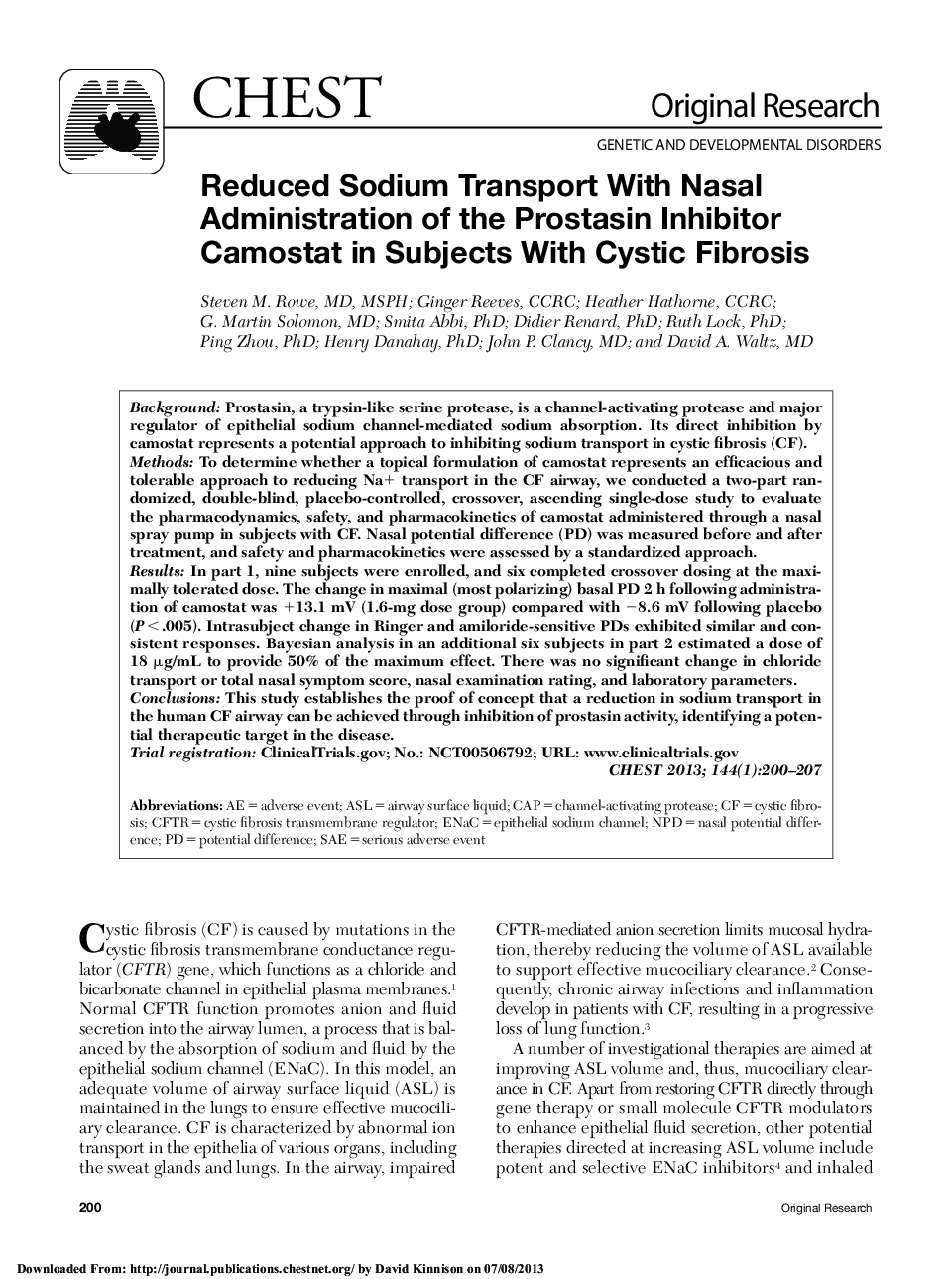| Article ID | Journal | Published Year | Pages | File Type |
|---|---|---|---|---|
| 5955741 | Chest | 2013 | 8 Pages |
BackgroundProstasin, a trypsin-like serine protease, is a channel-activating protease and major regulator of epithelial sodium channel-mediated sodium absorption. Its direct inhibition by camostat represents a potential approach to inhibiting sodium transport in cystic fibrosis (CF).MethodsTo determine whether a topical formulation of camostat represents an efficacious and tolerable approach to reducing Na+ transport in the CF airway, we conducted a two-part randomized, double-blind, placebo-controlled, crossover, ascending single-dose study to evaluate the pharmacodynamics, safety, and pharmacokinetics of camostat administered through a nasal spray pump in subjects with CF. Nasal potential difference (PD) was measured before and after treatment, and safety and pharmacokinetics were assessed by a standardized approach.ResultsIn part 1, nine subjects were enrolled, and six completed crossover dosing at the maximally tolerated dose. The change in maximal (most polarizing) basal PD 2 h following administration of camostat was +13.1 mV (1.6-mg dose group) compared with â8.6 mV following placebo (P < .005). Intrasubject change in Ringer and amiloride-sensitive PDs exhibited similar and consistent responses. Bayesian analysis in an additional six subjects in part 2 estimated a dose of 18 μg/mL to provide 50% of the maximum effect. There was no significant change in chloride transport or total nasal symptom score, nasal examination rating, and laboratory parameters.ConclusionsThis study establishes the proof of concept that a reduction in sodium transport in the human CF airway can be achieved through inhibition of prostasin activity, identifying a potential therapeutic target in the disease.Trial registrationClinicalTrials.gov; No.: NCT00506792; URL: www.clinicaltrials.gov
